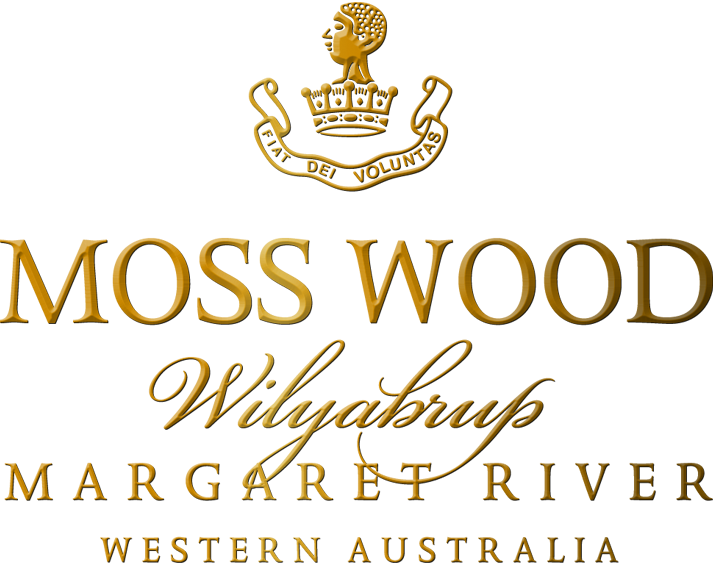Moss Wood 2019 Chardonnay

| Wine Facts | |
|---|---|
| Median Harvest Date | 25th March, 2019 |
| Harvest Ripeness | 13.1° Be |
| Yield | 3.61 t/ha |
| Weather Data | Growing Season Ave Temperature – 18.7⁰C Number of hours accrued between 18 and 28⁰C – 1130 Number of hours above 33⁰C – 6 |
| Days Elapsed between Flowering and Harvest | 121 days |
| Bottled | 13th July, 2020 |
| Released | 1st September, 2020 |
| Alcohol | 14.0 % |
Wine Facts
-
Median Harvest Date
25th March, 2019
-
Harvest Ripeness
13.1°Be
-
Yield
3.61 t/ha
-
Weather Data
Growing season Ave Temperature - 18.7⁰C
Number of hours accrued between 18° and 28⁰C – 1130
Number of hours above 33⁰C – 6
-
Days Elapsed between Flowering and Harvest
121 days
-
Bottled
13th July, 2020
-
Released
1st September, 2020
-
Alcohol
14.0 %
Moss Wood 2023 Chardonnay – Rob Geddes MW
This wine was included in the 2025 Masters of Wine exam which means it is regarded by them as a classic example of the regional varietal style, so I was excited having the chance to taste it among a wide array of Margaret River Chardonnay with both the “classic” concept…
Vintage Notes
Margaret River has developed a tremendous reputation for its Chardonnay wines and yet the variety’s contribution to the total vineyard area in our region doesn’t really reflect this. Consumers may also notice the relative scarcity of Margaret River Chardonnays on retail shelves and restaurant wine lists. The reasons for this were front and centre for the 2019 vintage.
While we have generally very good conditions for grape growing, our maritime climate can be a blessing and a curse. We enjoy a wet but mild winter which means the temperatures do not drop low enough to keep the early varieties, and Chardonnay in particular, in a long dormancy. For example, as this newsletter is being written at the end of August, the Moss Wood Chardonnay is now well into budburst. However, the wet and cold weather hasn’t finished and, in some years, can run through until December. Those sensitive new shoots are at risk of being damaged by strong winds, hail and even frost. Add to this the variety’s relative softness, which makes viticulturists joke that it’s the one which will catch a cold, and it becomes clear that the Margaret River and Chardonnay do not always get along.
To put it bluntly, in 2019 we saw all the things that can go wrong.
Frost is not an especially common event here but Moss Wood’s topography does make us somewhat frost prone. Cold air can collect in our little valley and will sit over two of the Chardonnay blocks and on very cold nights we get frosts. Serious frosts occurred in 1981, 1982, 1987, 2017 and 2018, although we can get light frosts in just about any year. The ’81 event was very nasty, coming as it did in mid-October, wiping out the bottom third of the Moss Wood vineyard. With it went more than 80% in each of the Chardonnay, Semillon and Cabernet Sauvignon blocks in that area.
In 2018, on 15th September, we had a frost of almost the same scale but were lucky in some respects, because Cabernet Sauvignon had not been through budburst so we were spared the worst. However, two of our Chardonnay blocks copped a nasty hit. The temperature at our weather station, well above the cold zone, dropped to 0.3°C. Ouch! Losses in both were 90% and Clare and Keith became media personalities for a week or so after it was picked up by the press.
What followed was everything we don’t like about a Margaret River spring. Over the 50 days during which the Chardonnay flowered, we had 14 days of rain and 15 days when the temperature dropped below 8°C, all of which disrupted the process. The only thing we didn’t get was hail, so perhaps we should be thankful. The resulting yield of 3.61 tonnes per hectare was a dismal 47% down.
After flowering things progressed relatively easily but Mother Nature had one last trick up her sleeve for 2019 – the birds. The redgum flowering was virtually non-existent and the silvereye birds developed a voracious appetite for grapes. We applied nets to keep them off and had some success and the losses were minimised but the already small crop meant we had to pick and sort every bunch as carefully as possible.
After this tale of woe, readers will be amused to know the season was absolutely brilliant for ripening conditions and flavour development. Temperatures remained moderate right through the summer and Chardonnay received only 6 hours where the mercury exceeded 33°C. It made its way lazily to full ripeness over 121 days, using up 1130 hours between 18° and 28°C from flowering to harvest, a week longer than normal, crossing the finish line on 25th March at a ripeness of 13.1° Baume, exactly its long-term average. We could not have been happier with how it all tasted.
Production Notes
The fruit was hand-picked, sorted and whole-bunch pressed and the juice was settled in stainless steel for 48 hours. The clear juice was then racked to stainless steel, with a small inclusion of solids and seeded with multiple yeast strains for primary fermentation. At the half way mark, the fermenting must was racked to wood to complete the process. All the barrels were 228 litre French oak and 50% were new. After primary fermentation the wine then underwent malolactic fermentation and upon completion all barrels were racked to stainless steel, blended, analysed and adjusted for acidity and SO2.
The finished wine was then returned to barrel, where it stayed until the end of June, 2020. At this point all barrels were racked and blended in stainless steel and fining trials were carried out. The wine was fined with bentonite, for protein stability and then sterile filtered and bottled on 13th July, 2020.
Tasting Notes
Colour and condition:
Medium straw hue; bright condition.
Nose:
There is a strong lift of vibrant Chardonnay aromas, with peach, rock melon, nashi pear and limes combining with florals like jasmine, honeysuckle and orange rind. The light toasty oak sits nicely in the background, combining with roasted cashew nuts, caramel, crème brulee and earthy, mushroom notes.
Palate:
Here we see a progression from the nose, the initial impression is one of a full-bodied wine, with good structure provided by fresh acidity and firm, but not aggressive, tannins. Generous peach, grapefruit and dried apricot flavours provide the perfect foil for the structure and there is good length, with a finish of caramel, cream cheese, earthy and toasty notes.
Cellaring
It may seem our cellaring recommendations are beginning to sound like cracked records but we suppose this is the result of having made so many vintages, giving us the chance to look back and reflect. In any year where the Chardonnay, or any other of our varieties for that matter, reach full maturity, we have complete confidence in recommending them for long-term cellaring. In the case of the 2019 Chardonnay, it will need at least 10 years to develop its bottle bouquet of butter and toasty aromas, as well as showing some softening of the structure on the palate. Between 10 and 20 years of age these will gradually play a bigger role in the wine and we expect full maturity at between 20 and 25 years old.

